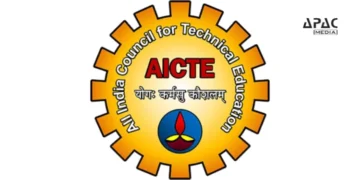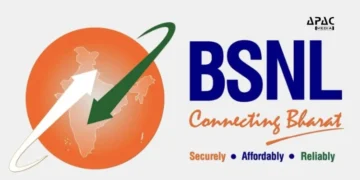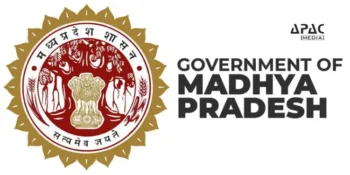New Delhi: India’s diplomatic engagements over the past five years have resulted in a range of development projects across the globe and within the country. Minister of State for External Affairs, Pabitra Margherita stated in the Parliament that the Memorandums of Understanding (MoUs) signed during high-level visits by the Prime Minister have fostered economic, cultural, and technological partnerships.
“High-level visits are established means to display India’s capabilities abroad, expand market access and create the basis for economic partnerships. This is especially so with nations of the Global South…Agreements and MoUs are also signed with foreign partners in respect of development projects at home…Together, these endeavours contribute to accelerating India’s quest to be Viksit Bharat in 2047,” said MoS Margherita.
Key Development Initiatives and Projects in India
France:
During Prime Minister Modi’s visits to France on 22 August 2019 and 14 July 2023, several key agreements were signed to enhance India-France cooperation. These included an MoU between NISE (India) and CEA (France) for renewable energy collaboration, and a Letter of Intent (LoI) on the New National Museum and museology, with a further MoU in progress.
An MoU on Digital Technologies was signed between MeitY and the French Ministry of Economy to promote digital innovation. Invest India and Business France also signed an MoU to boost startup cooperation.
The TRISHNA Earth Observation Mission was advanced and aimed at monitoring water resources, land temperature, and vegetation health. Additionally, a LoI on Health and Medicine Cooperation was signed to improve public health. These agreements span areas like renewable energy, cultural cooperation, digital technology, startups, space technology, water management, and health, strengthening bilateral ties.
The US:
From 21st to 28th September 2019, an MoU was signed between Petronet LNG Limited (India) and Tellurian Inc. (USA) to explore energy cooperation. This collaboration aims to strengthen the energy sector by enhancing bilateral ties in natural gas and energy trade.
On 28th September 2021, an MoU was signed between the Ministry of Health and Family Welfare (India) and the US Department of Health and Human Services to expand cooperation in the healthcare sector. This agreement focuses on fostering innovation in public health and research related to health safety, communicable diseases, and non-communicable diseases, including health system strengthening and policy development.
On 24th September 2024, the Indian Council of Medical Research (ICMR) and the US National Institute of Allergy and Infectious Diseases (NIAID) renewed their partnership for the Indo-U.S. International Center of Excellence in Research (ICER) program. This collaboration, focused on infectious disease research, will include joint research projects, scientific exchanges, and strengthening research capacity at the National Institute for Research on Tuberculosis in Chennai.
An MoU was signed to extend the Statement of Guiding Principles on Triangular Cooperation for Global Development (SGP) between India and the USA, with the extension valid until 2026. This agreement emphasizes joint development partnerships, capacity building, and technical assistance, reinforcing cooperation in global development initiatives.
On 21st June 2023, India signed the Artemis Accords, marking its commitment to the peaceful exploration and use of outer space, including the Moon, Mars, and other celestial bodies. This agreement enhances India-US cooperation in civil space exploration.
India also signed agreements under the Indo-Pacific Economic Framework (IPEF) on 21st September 2024, covering clean economy and fair economy pillars. The agreements aim to promote clean energy, and climate-friendly technologies, and enhance investment, anti-corruption measures, and business environment improvement across the Indo-Pacific region.
Lastly, an MoU on the India-US Drug Policy Framework was signed during the Prime Minister’s visit in September 2024. This agreement will enhance collaboration to combat the illicit production and trafficking of synthetic drugs and deepen the holistic public health partnership between both nations.
Germany:
The Indian government has signed several MoUs and Joint Development Initiatives (JDIs) during the Prime Minister’s foreign visits starting from 1st July 2019, especially during the 6th India-Germany Intergovernmental Consultations (IGC). These agreements cover a range of development projects in partnership with Germany aimed at promoting sustainability and environmental protection.
The JDI on Partnership for Green and Sustainable Development remains active and focuses on promoting financial and technical assistance from Germany for sustainable development projects in India. The JDI on Indo-German Development Cooperation related to Renewable Energy is also active, facilitating cooperation between the two nations to advance the renewable energy sector in India. Additionally, the JDI on Indo-German Green Hydrogen Task Force is contributing to the development of a green hydrogen industry in India, with Germany’s expertise in this emerging field.
Another active agreement is the JDI on Agroecology and Sustainable Management of Natural Resources, a Lighthouse Initiative that promotes sustainable agriculture and natural resource management practices. There is also ongoing cooperation under the JDI on Cooperation in the Field of Forest Landscape Restoration, which focuses on forest conservation, climate protection, and the preservation of biodiversity.
These initiatives are likely to bring significant benefits to India, including financial and technical assistance in the sectors of renewable energy, sustainable urban development, green mobility, and sustainable agriculture. Moreover, the agreements aim to improve cooperation in environmental management, agroecology, and forest restoration, contributing to climate change mitigation and the protection of India’s biodiversity.
UAE:
Several MoUs were signed between India and the UAE in 2023 and early 2024, aimed at enhancing bilateral cooperation in various sectors.
In July 2023, a MoU was signed to establish a framework for promoting the use of local currencies (INR-AED) for cross-border transactions between India and the UAE. This agreement is currently under discussion and in various stages of implementation, with a focus on boosting trade and finance between the two countries.
In February 2024, an additional MoU was signed on interlinking payment and messaging systems between the two nations. This includes the integration of India’s UPI and the UAE’s AANI instant payment platforms, as well as the linking of RuPay (India) with JAYWAN (UAE) debit/credit cards. These initiatives aim to ease cross-border transactions and reduce transaction costs, facilitating smoother financial interactions.
Another MoU signed in February 2024 pertains to the National Maritime Heritage Complex (NMHC) in Lothal, Gujarat, focusing on maritime research and international collaborations in the cultural sector. This agreement is still under discussion and aims to bolster maritime heritage and research exchanges.
A further MoU in February 2024 emphasizes investment cooperation in digital infrastructure projects. This agreement aims to strengthen the digital infrastructure ecosystem and improve access to advanced technologies, which is crucial for technological advancement and digital connectivity.
Lastly, in the energy sector, a MoU was signed on electricity interconnection and trade in February 2024. This agreement, still in various stages of implementation, aims to enhance trade in energy and improve energy self-sufficiency, marking a significant step in increasing energy cooperation between India and the UAE.
Saudi Arabia:
Several MoUs were signed between India and Saudi Arabia in October 2019, focusing on diverse areas of cooperation that are currently in various stages of implementation.
One such agreement is the MoU on Cooperation in Renewable Energy between Saudi Arabia’s Ministry of Energy and India’s Ministry of New & Renewable Energy. This MoU aims to enhance energy diversification and self-sufficiency, supporting both countries’ efforts to boost renewable energy capacity and secure sustainable energy futures.
In the defence sector, an MoU was signed between Saudi Arabia’s General Authority of Military Industries (GAMI) and India’s Ministry of Defence, focusing on military acquisition, research, development, and technology. This collaboration aims to promote self-reliance in defence production in India and open avenues for potential defence exports under the Make in India initiative.
Another significant agreement involves the Central Drugs Standard Control Organization (CDSCO) of India and the Saudi Food & Drug Authority (SFDA), aimed at strengthening cooperation in the regulation of medical products. This MoU is expected to support the export of medical equipment and pharmaceuticals, enhancing bilateral trade in the healthcare sector.
The Letter of Intent between Saudi Arabia’s Small and Medium Enterprises General Authority (Monshaat) and India’s Atal Innovation Mission (AIM), signed in the same month, is geared towards fostering small and medium enterprises (SMEs). This partnership seeks to strengthen India’s Make in India initiative and provide new opportunities for growth and collaboration in the SME sector.
In the energy sector, the Indian Strategic Petroleum Reserves Limited (ISPRL) and Saudi Aramco signed an MoU to enhance energy security and support energy self-sufficiency. This initiative further deepens bilateral cooperation on energy storage and management.
Lastly, the MoU between the National Payments Corporation of India (NPCI) and Saudi Payments aims to enhance the digitisation of the economy, streamline cross-border transactions, and reduce currency conversion charges. This partnership seeks to improve the ease of doing international business, leveraging digital payment solutions.
Maldives:
An MoU for the Establishment of Passenger and Cargo Services by Sea between India and the Maldives is ongoing. This agreement is aimed at enhancing trade linkages and strengthening people-to-people contacts. The operationalization of the India-Maldives Shipping Service will facilitate direct cargo movement between the ports of both countries, improving connectivity and trade relations.
Sri Lanka:
In Sri Lanka, an MoU between NPCL International Payments Ltd and LankaPay focuses on advancing digital payments. A significant milestone was achieved with the launch of the UPI QR-based payment system in Sri Lanka on 12 February 2024, during a virtual event with the Prime Ministers of both nations. This initiative is making it easier for Indian tourists visiting Sri Lanka to make payments and conduct transactions, thus enhancing digital connectivity and promoting tourism.
Furthermore, the Passenger Ferry Service between Nagapattinam (Tamil Nadu) and Kankesanthurai (KKS) in Jaffna was launched in October 2023. The service facilitates maritime connectivity and enhances people-to-people ties, trade, and tourism between India and Sri Lanka. By August 2024, a commercial operator commenced operations for this ferry service.
Mauritius:
In Mauritius, a Memorandum of Understanding was signed to improve sea and air transportation facilities at Agalega Island. On 29 February 2024, the Prime Minister of India and the former Mauritian Prime Minister jointly inaugurated the newly constructed runway and jetty. This development has significantly enhanced connectivity between mainland Mauritius and Agalega, benefiting surveillance and monitoring of Mauritius’s Exclusive Economic Zone (EEZ).
Bangladesh:
In Bangladesh, the Mitali Express, a passenger train service connecting Dhaka and New Jalpaiguri via the Chilahati-Haldibari rail link, was inaugurated, promoting rail connectivity and boosting tourism between the two nations. Though the service is currently temporarily suspended due to security concerns, it has strengthened people-to-people ties.
Additionally, three border haats were inaugurated: Nalikata-Saydabad, Ryngku-Bagan Bari, and Bholagunj-Bholagunj. These haats aim to contribute to the livelihood of people in border areas and enhance trade and border connectivity between India and Bangladesh. However, they are also temporarily suspended due to the ongoing security situation.
Singapore:
On 2nd September 2024, India and Singapore signed an MoU on Education Cooperation and Skills Development, aimed at enhancing collaboration in capability and skills development. The agreement seeks to promote cooperation between higher education institutions, facilitate the exchange of information and best practices, and encourage the exchange of teaching staff, educational administrators, and students.
It also focuses on strengthening teacher training initiatives. The MoU will particularly benefit technical and vocational education training (TVET), boosting educational ties between the two nations and fostering the development of skilled professionals.
Global Development Projects
India’s collaboration with other countries has also resulted in several impactful projects on foreign soil.
An MoU on the supply of ICT equipment, courseware, reference books, and training for the Bangladesh-Bharat Digital Service and Employment Training (BDSET) Centre was signed in March 2021, with physical progress at 80% and financial progress at 75%. The project focuses on creating a skilled workforce in Bangladesh through IT labs and infrastructure. The Rooppur Power Evacuation Project, expected to be completed by 2026, will enhance Bangladesh’s energy security, with two of its five packages already completed. The Rabindra Bhawan facilities in Kuthibari, inaugurated in June 2023, contribute to the restoration of shared cultural heritage between India and Bangladesh.
In Lao PDR, three Quick Impact Projects (QIPs) were announced during the PM’s visit to Vientiane on 10 October 2024, aimed at preserving cultural heritage. These projects focus on the Lao Ramayana drama, the renovation of Wat Phakea Temple, and the preservation of Shadow Puppet Theatre, contributing to local welfare and fostering goodwill under the Mekong Ganga Cooperation framework.
In Nepal, the Arun 4 Project, a joint agreement between SJVN Ltd and Nepal Electricity Authority, will develop a 490 MW power project to strengthen energy cooperation, boost Nepal’s power generation, and provide clean energy access.
During the PM’s visit to Guyana in November 2024, an MoU on SMEs was signed with Trinidad and Tobago to enhance the SME sector, create local employment, and boost exports, especially in agriculture and food processing. An MoU on UPI was also signed with Guyana to digitize its economy and improve B2B, P2P, and G2P transactions.
The MoU on Humanitarian Grant Assistance, signed on 23 August 2024 with Ukraine, provides up to USD 1.5 million for community development projects in sectors such as education, health, agriculture, and renewable energy. The agreement, valid until 2029, aims to support socio-economic development and infrastructure in Ukraine.
Vietnam’s Army Software Park project, funded by Indian Grant Assistance after the 2020 India-Vietnam summit, aims to strengthen IT infrastructure and defence cooperation.
Germany’s MoUs on Triangular Development Cooperation during the 6th Indo-German Consultations supports sustainable development projects in third countries, aligning with green goals.
In the UAE, an MoU for establishing an IIT Delhi campus in Abu Dhabi was signed in July 2023, offering BTech and MTech courses, and enhancing educational opportunities for the Indian community. Bharat Mart, launched in February 2024, aims to expand market access for Indian exports, particularly for SMEs. The Inter-Governmental Framework Agreement on the India-Middle East-Europe Economic Corridor, also signed in February 2024, promotes trade efficiency and reduces costs through a virtual trade corridor between India and the UAE.
Also Read –

































































Discussion about this post